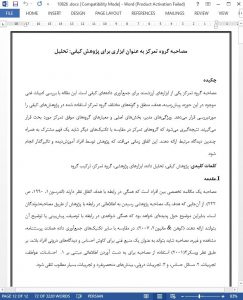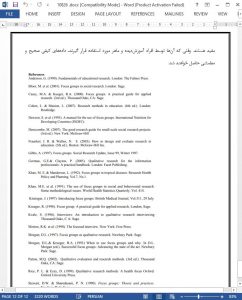Abstract
Focus group interview is one of the valuable tools for collecting qualitative data. In view of extensive literature on the subject, this paper examines the background, purpose, rationale, and various forms of focus groups to be used in qualitative research. Characteristics of moderator, major phases and criteria of successful focus groups have also been discussed. It is concluded that the focus groups, compared to other techniques, may yield shared understanding and several perspectives of a given topic if they are conducted by well-trained efficient researchers.
I. Introduction
Interview is “a specialized form of communication between people for a specific purpose associated with some agreed subject matter” (Anderson, 1990, p.222). As the purpose of the research interview is to obtain research-relevant information from the interviewee, it is centred on the evidence to be generated for achieving the research objectives of describing, predicting or explaining the phenomenon (Cohen & Manion, 2007). As compared to other techniques of data collection e.g. questionnaire, observation, etc., interview may serve as a rich source for exploring people’s inner feelings and attitudes. According to Wisker (2001), the use of interview is highly desirable for obtaining information based on i. emotions, feelings, experiences, ii. sensitive issues, and, iii. insider experience, privileged insights and experiences.
X. Conclusion
Focus groups are more than collection of individual interviews. The element of synergy and interaction between the group members play significant role in generating the data. Despite their few limitations, focus group interviews are valuable tools for collecting the qualitative data. They are much useful for the researches relating to planning, improvement and evaluation of certain programmes. When used by the trained and skilled researchers, they may yield efficiently valid and reliable qualitative data.










